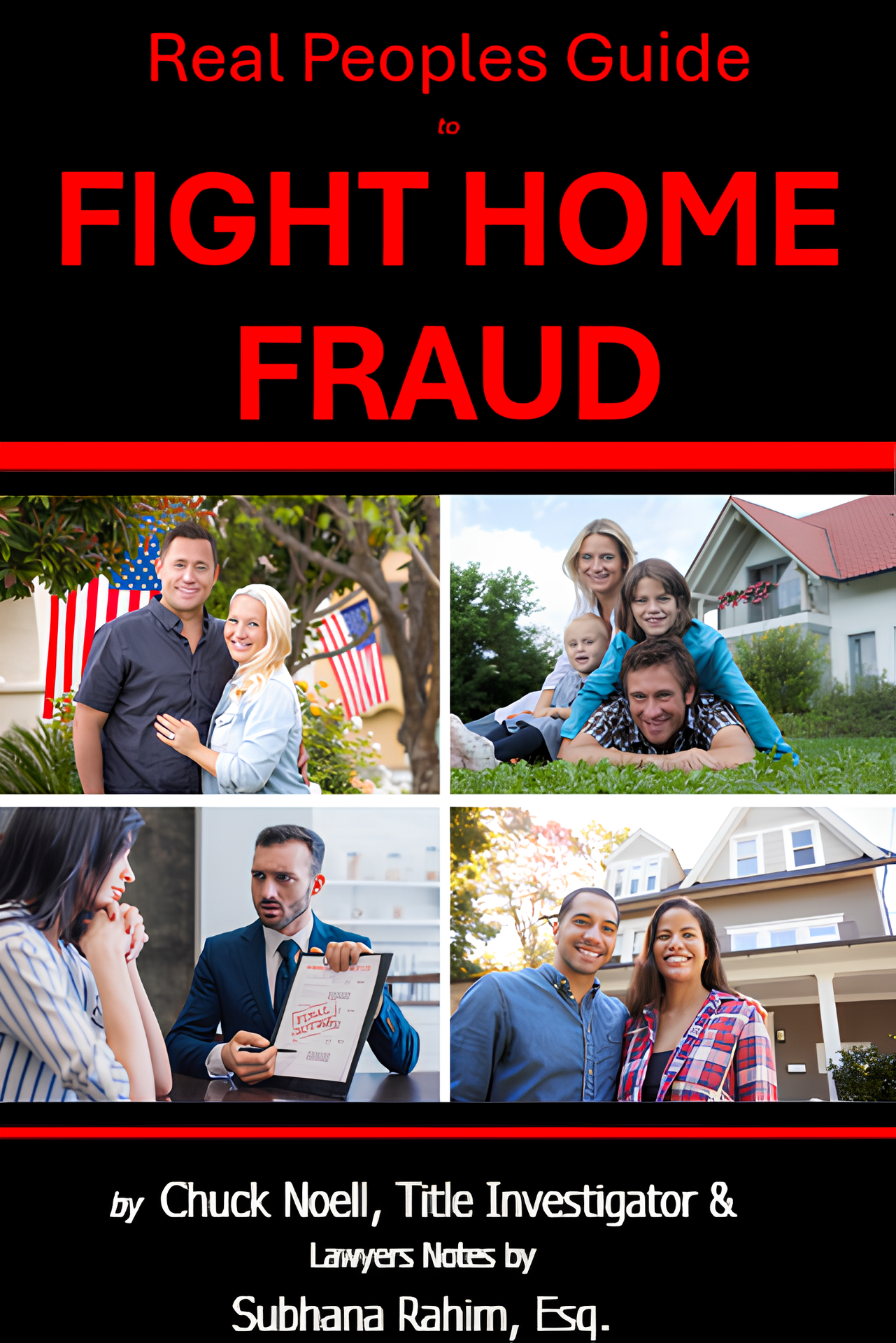
The Hidden Costs: How Real Estate Scams Undermine Community Development
Real estate scams are not just devastating for individuals—they have a profound impact on broader community development as well. Fraudulent activities in real estate not only strip potential homeowners of their savings and trust but also erode the economic and social fabric of communities.
One stark example described in “The Real People’s Guide to Fighting Real Estate Fraud” involves a scenario where a group of investors fell victim to a land flip scam. The scam involved artificially inflated property values sold through forged documentation. When the scheme was uncovered, the properties plummeted in value, leaving a neighborhood with numerous foreclosed homes. This not only affected the direct victims but also led to a widespread decline in property values that stifled further investment and economic growth in the area.
Communities thrive on stability and growth, both of which are compromised by the prevalence of real estate scams. When fraud occurs, properties may end up in legal limbo, causing neighborhoods to stagnate. Houses sit empty, becoming vulnerable to vandalism and decay, devaluing neighborhood properties, and deterring potential investment and development.
Moreover, the ripple effects of these scams contribute to a climate of distrust. Potential home buyers become wary of legitimate opportunities, slowing down the healthy turnover of homes and stifling community vibrancy. When citizens hesitate to invest in property or engage in community initiatives due to fear of fraud, the communal spirit diminishes, and local economies suffer.
It’s clear that real estate scams do more than rob individuals of their financial security; they undermine the very foundations that thriving communities are built on. By spreading awareness and educating potential buyers, we can protect not only individual investments but also the health and future of our entire communities.
This fabricated example is based on common real estate fraud scenarios and illustrates how such incidents can ripple through communities, aligning with the themes typically explored in literature on real estate fraud.
Furthermore, the legal battles that often ensue from these scams can drain community resources and occupy legal services that could be focused on other community-enhancing efforts. For instance, the local government might need to allocate significant funds to legal costs and investigations, diverting these funds from community projects such as parks, schools, and public services that directly benefit the residents.

In another chapter of “The Real People’s Guide to Fighting Real Estate Fraud,” a neighborhood affected by a widespread rental scam is examined. Fraudulent landlords collected deposits and first month’s rents from multiple tenants and then disappeared, leaving tenants without their money and without a home. This type of scam not only harms the individual victims but also damages the community’s reputation, making it harder to attract responsible and trustworthy residents.
The impact of these scams stretches beyond immediate financial loss. They lead to increased insurance premiums, heightened security measures, and a general sense of insecurity in the neighborhood. This fear can stifle community involvement and engagement, essential ingredients for a thriving community spirit.
Community development relies heavily on trust—trust in neighbors, in transactions, and in the overall market’s fairness. Real estate scams fundamentally shake this trust, leading to communities that are less cohesive and more cautious about investment. It’s essential for individuals, community leaders, and law enforcement to work together to identify and prevent real estate scams to maintain the integrity and prosperity of their neighborhoods.
Through education and vigilance, communities can mitigate the effects of real estate fraud. “The Real People’s Guide to Fighting Real Estate Fraud” serves as a critical resource, offering tools and insights that empower readers to recognize fraudulent schemes and take proactive steps to protect themselves and their communities. By fostering an environment where information and resources are readily available, communities can not only prevent fraud but also enhance their resilience, ensuring their growth and stability for years to come.

Ways You Can Protects Yourself and Your Loved One’s
Here’s a list of the best ways someone can protect themselves from real estate fraud, each accompanied by a brief description of the benefit:
- Educate Yourself About Real Estate Processes
Benefit: Understanding the basics of real estate transactions and knowing what is standard practice helps you spot irregularities and potential frauds before you become a victim. - Verify the Credentials of All Involved Parties
Benefit: Checking the licensing and professional status of real estate agents, brokers, and attorneys ensures you are dealing with qualified and legitimate professionals. - Use a Reputable Escrow Company
Benefit: Employing a well-known and trustworthy escrow company to handle the exchange of money and documents in a transaction adds a layer of security and impartiality. - Conduct Independent Property and Title Research
Benefit: Doing your own research or hiring a professional to check the property history and title can uncover any discrepancies or claims that might indicate fraud. - Get a Professional Home Inspection
Benefit: A thorough inspection by a certified home inspector can reveal hidden problems, ensuring you are fully aware of your potential investment’s condition. - Consult with a Real Estate Attorney
Benefit: Legal advice from a real estate attorney can help you navigate complex transactions and recognize unlawful practices. - Avoid Rushed Transactions
Benefit: Taking your time with real estate decisions helps prevent being pressured into dubious deals and gives you space to perform due diligence. - Be Cautious with Personal Information
Benefit: Safeguarding your personal and financial information prevents identity theft and fraud, which are common in real estate scams. - Regularly Review Your Property Records
Benefit: Monitoring your property’s records for unexpected changes can alert you to possible fraud such as title theft. - Seek Second Opinions
Benefit: Getting a second opinion from another trusted professional can provide reassurance and an additional layer of protection against being misled. - Use Secure Payment Methods
Benefit: Employing verified payment methods recommended by your bank or attorney ensures your funds are properly documented and transferred securely. - Watch for Red Flags
Benefit: Being aware of common red flags, like unusually high returns on investment or requests for wire transfers to foreign banks, can protect you from falling into common fraud traps. - Stay Informed About Real Estate Scams
Benefit: Keeping up-to-date with the latest scam alerts from real estate boards and consumer protection agencies helps you stay one step ahead of fraudsters.


